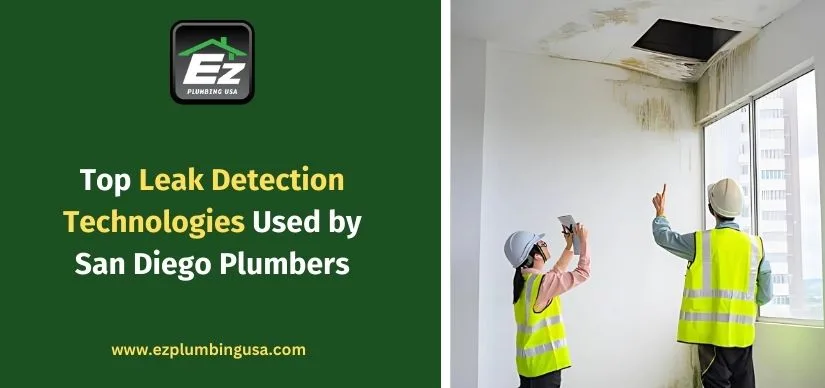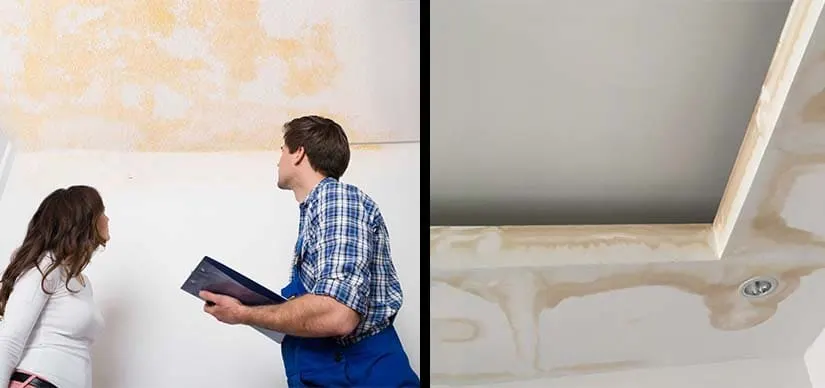Top Leak Detection Technologies Used by San Diego Plumbers
Views : 477

Why Leak Detection Matters
- Structural Damage: Water can weaken foundations and cause rot in wooden structures.
- Mold Growth: Moisture from leaks encourages mold, which affects indoor air quality.
- Higher Utility Bills: Hidden leaks can waste gallons of water daily.
- Wasted Resources: Unattended leaks contribute to water scarcity problems.
Top Leak Detection Technologies
1. Acoustic Leak Detectors
- Detect sound waves generated by leaks in pressurized systems.
- Ideal for underground pipelines and areas inaccessible by sight.
- Plumbers listen for leak-specific frequencies using specialized sensors.
2. Thermal Imaging Cameras
- Reveal temperature variations associated with water leaks.
- Highlight hidden water behind walls or under flooring.
- Excellent for non-invasive inspections and quick assessments.
3. Electronic Leak Detection Systems
- Employs electric currents to trace leak points.
- Commonly used for slab leaks, pool plumbing, and radiant heating systems.
- Reduces guesswork and excavation needs.
4. Video Pipe Inspection (CCTV)
- Miniature cameras provide real-time visuals of pipe interiors.
- Detects blockages, corrosion, and structural issues.
- Especially useful for mainline inspections and sewer troubleshooting.
5. Ultrasonic Leak Detectors
- Emit high-frequency sound waves that identify leak turbulence.
- Detects even the smallest leaks in complex or noisy environments.
- Ideal for both gas and water piping systems.
6. Smoke Testing
- Uses non-toxic smoke to detect leaks in sewer and drain lines.
- Helpful for identifying broken seals or illegal connections.
- Commonly used in commercial property inspections.
7. Moisture Sensors and Meters
- Measures moisture levels in building materials.
- Indicates the presence and severity of hidden water damage.
- Used in post-leak assessments and insurance documentation.
Advanced Techniques Gaining Popularity
Smart Leak Detection Systems
- Connect to Wi-Fi and notify homeowners via mobile apps.
- Monitor water usage and detect abnormalities in real-time.
- Some systems can automatically shut off water supply upon detection.
AI-Driven Leak Analytics
- Use machine learning to analyze water flow patterns.
- Predict potential leaks based on usage behavior.
- Improves preventive maintenance schedules.
Advantages of Using Modern Leak Detection Technologies
- Minimally Invasive: Prevents unnecessary property damage.
- Accurate Diagnosis: Locates the precise problem area.
- Saves Time: Rapid identification and repair reduce downtime.
- Cost-Efficient: Avoids extensive repairs by catching issues early.
- Environmentally Friendly: Minimizes water waste and promotes sustainability.
The Leak Detection Process Explained
- Initial Consultation:The plumber gathers information on symptoms (wet spots, high water bill, etc.).
- Site Inspection: A visual and equipment-based inspection is conducted.
- Technology Deployment: The appropriate detection method is selected based on the situation.
- Data Analysis & Reporting: Results are documented and discussed with the homeowner.
- Repair & Verification: After repair, the system is re-checked to ensure no further issues.
When Should You Call a Leak Detection Expert?
- Sudden spike in water bills.
- Damp or discolored walls, floors, or ceilings.
- Sound of running water when no taps are open.
- Mold growth or musty smells.
- Low water pressure.
- Unexplained wet spots on floors or lawns.
Plumbing Inspection: The First Line of Defense
- Annual Inspection Schedules: Prevent emergencies.
- Pipe Integrity Checks: Spot corrosion, rust, or weak joints.
- Pressure Testing: Identifies abnormal water pressure levels.
- Fixture Review: Ensures faucets, toilets, and appliances are leak-free.
Tips to Prevent Leaks in the Future
- Schedule annual plumbing inspection in San Diego.
- Monitor water bills for unexpected increases.
- Check visible pipes for corrosion or drips.
- Install water sensors near water heaters and dishwashers.
- Replace aging fixtures and pipes as needed.
- Avoid using chemical drain cleaners excessively.
- Insulate pipes to prevent freezing in winter.
Common Areas Where Leaks Occur
- Under sinks and bathroom vanities
- In walls behind showers and tubs
- Water heater units and supply lines
- Outdoor hose bibs and sprinkler systems
- Slab foundations and crawl spaces
Choosing the Right Leak Detection Company
- Licensed and Certified Technicians: Always ask for credentials.
- Technology Proficiency: Ensure they use modern detection tools.
- Customer Reviews and References: Check online ratings and testimonials.
- Service Guarantees: A reputable company stands behind its work.
- Emergency Availability: 24/7 service ensures help when you need it most.
Conclusion
FAQ'S
1. What is the most accurate leak detection method?
Thermal imaging and acoustic sensors are among the most accurate methods, as they provide real-time data without damaging property surfaces.
2. How much does leak detection in San Diego cost?
Costs can vary but typically range from $150 to $500, depending on the complexity and tools used during inspection.
3. Can I detect leaks without professional help?
While minor leaks may be spotted visually or with DIY kits, professional detection is more accurate and essential for hidden or underground leaks.
4. How long does a plumbing inspection in San Diego take?
Most inspections take 1 to 3 hours, depending on property size and plumbing complexity.
5. Are leak detection services covered by insurance?
In many cases, yes—especially if the leak leads to property damage. It's best to check with your provider for specific coverage details.

.jpg)

.jpg)
